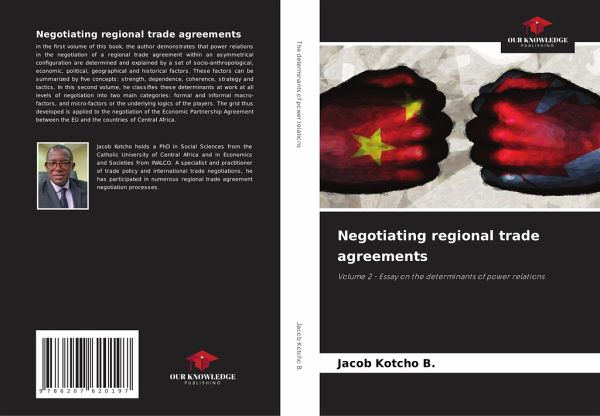
Negotiating regional trade agreements
Volume 2 - Essay on the determinants of power relations
Versandkostenfrei!
Versandfertig in 6-10 Tagen
64,99 €
inkl. MwSt.

PAYBACK Punkte
32 °P sammeln!
In the first volume of this book, the author demonstrates that power relations in the negotiation of a regional trade agreement within an asymmetrical configuration are determined and explained by a set of socio-anthropological, economic, political, geographical and historical factors. These factors can be summarized by five concepts: strength, dependence, coherence, strategy and tactics. In this second volume, he classifies these determinants at work at all levels of negotiation into two main categories: formal and informal macro-factors, and micro-factors or the underlying logics of the play...
In the first volume of this book, the author demonstrates that power relations in the negotiation of a regional trade agreement within an asymmetrical configuration are determined and explained by a set of socio-anthropological, economic, political, geographical and historical factors. These factors can be summarized by five concepts: strength, dependence, coherence, strategy and tactics. In this second volume, he classifies these determinants at work at all levels of negotiation into two main categories: formal and informal macro-factors, and micro-factors or the underlying logics of the players. The grid thus developed is applied to the negotiation of the Economic Partnership Agreement between the EU and the countries of Central Africa.














